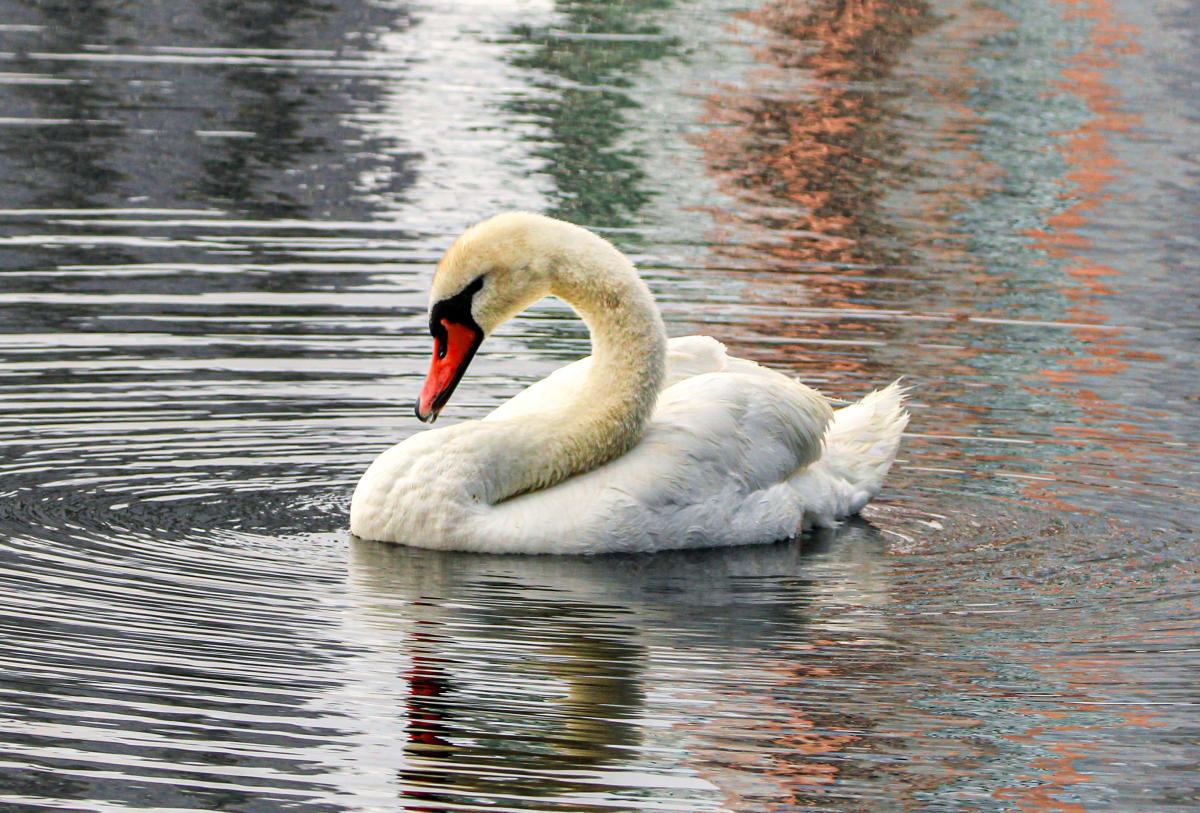Avian Influenza Outbreak Strikes Swans at Lake Eola Park
Concerns Rise as Bird Flu Virus Claims Lives of Storied Swans
Orlando, FL – In a devastating blow to the iconic swans of Lake Eola, avian influenza, commonly known as the bird flu virus, has taken its toll on the cherished bird population. City officials have confirmed that two swans, a Royal Mute swan and an Australian black swan, have now tested positive for the virus following their unfortunate demise in the park. As the death toll rises, concerns over the preservation of these majestic creatures have reached new heights.
Possible Criminal Activity Surrounds Swan Deaths
The proximity of the discoveries involving two black-necked swans has prompted city officials to believe that criminal activity may be involved in at least one of the unfortunate incidents. As a result, local law enforcement has launched an investigation into the matter, seeking justice for the fallen swans.
City Takes Precautions to Limit Spread of Virus
Ashley Papagni, a spokeswoman for the city, emphasized the importance of preventing the virus from spreading. Avian influenza can be transmitted from birds to humans in rare instances, causing symptoms resembling those of the common flu. While rarely fatal for humans, birds are unable to overcome the virus, succumbing to its fatal effects.
The city has initiated proactive measures to ensure public safety. Various surfaces throughout the park have been thoroughly disinfected, and ongoing disinfection measures will continue to be implemented. City staff members have been instructed to take additional precautions, such as thoroughly washing shoes, uniforms, and equipment, including bike tires.
Necropsies Awaited for Additional Swans
As the investigation into the bird deaths continues, the city is eagerly awaiting the results of necropsies conducted on the recently discovered deceased birds. Preliminary investigations suggest the possibility of criminal involvement, making it vital to conduct thorough examinations to ascertain the true cause of their deaths.
Florida Officials Seek to Limit the Spread
Striving to curb the ongoing avian influenza outbreak, the city is closely coordinating its efforts with the Florida Fish and Wildlife Conservation Commission (FWC) and local veterinarians. With over 60 swans residing in Lake Eola, the task of containing the virus is of utmost importance.
For the time being, park visitors are being strongly urged to avoid direct contact with the swans. It is advised to maintain a safe distance and refrain from coming into contact with any bird excrement. Additionally, the FWC recommends that visitors remove their shoes upon returning home and promptly clean them, particularly if contamination is suspected.
FWC Advocates Allowing the Virus to Run its Course
Considering the park’s size and the significant bird population residing there, the FWC recommends allowing the avian influenza virus to naturally dissipate. Some birds in the park may develop immunity over time, helping in the containment efforts. However, the completion of this process is estimated to take up to a month.
In the meantime, the city remains vigilant in its monitoring and reporting of any new infections to the FWC. Additionally, continued efforts to disinfect the park are being prioritized to curb the potential spread of the virus.
Swans of Lake Eola: A Treasured Legacy at Risk
The swans of Lake Eola have long been an irreplaceable part of the park’s allure, enchanting visitors with their graceful presence. The collection, which began in 1922, boasts a diverse population of swan species, including trumpeter swans, black-necked swans, whooper swans, Royal Mute swans, and Australian black swans. To further capitalize on the swans’ popularity, the city introduced swan-shaped paddle boats, becoming a notable attraction for locals and tourists alike.
Some individual swans, like the beloved Queenie, have even earned a special place in the hearts of many. Queenie, at one point Lake Eola’s only black-necked swan, successfully gave birth to three black-necked babies, further solidifying her popularity among parkgoers. Assurances have been made by city officials that Queenie remains healthy and uninfected, but tragically, two of her offspring have fallen victim to the virus.
Swan enthusiasts and bird-loving residents were captivated by Orlando’s quest to find Queenie a suitable mate back in 2019. The excitement surrounding this mission led to the Swan-A-Thon initiative, encouraging residents to contribute funds to support the care of the swans through the Orlando Community Youth Trust.
A Developing Situation
The avian influenza outbreak at Lake Eola Park remains a developing story. The Orlando community anxiously awaits further updates as city officials, in conjunction with the FWC, work diligently to contain the virus and protect the remaining swan population and visitors to the park.
